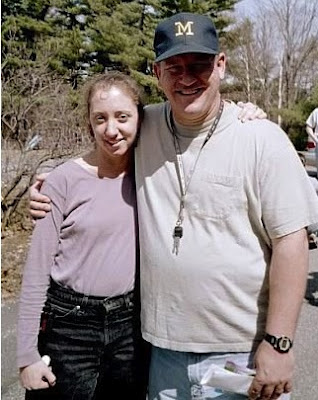For much of my life, I was paralyzed by fear. Fear of failure. Fear of loss. Fear of the walls that I’d so carefully constructed falling down around me.
Fear of trusting God and having Him disappoint me, too.
Though I had worked through some of this, I carried much of this fear into my marriage. I would at times ask my husband not to go out without me, such as an occassion where he was going to hear music with friends. I was totally gripped by a fear that something would happen to him while he was gone. This, thankfully, happened very infrequently, but when it did, it was as real and oppressive as anything I could remember experiencing.
In 2004, my husband and I were involved in an amazing church plant. It was like nothing I had ever experienced before. It really felt like this was how the church was supposed to be: real, welcoming, warm, convicting – just full of Jesus. I was the worship leader, and personally, I felt as if I was finally walking in the fullness of my calling: to use my songs to glorify God and to lead people to Him. I signed up to attend a local worship conference with Andy Park, Rita Springer, and some other well-known leaders.
Just weeks before I was scheduled to attend this conference, the church plant closed when the pastor chose sinful behavior (a sin that he had struggled with for years but had had several years of victory over) above his calling.
I went forward with my plan to attend the conference, though I had no idea why. It felt as if all my dreams had come crashing down, once again.
The conference was amazing, but on the morning of the last day, that dark voice began to beckon: You need to leave. Something awful is going to happen. You need to go home NOW or something will happen to Roy.
I called Roy, sobbing in my car, telling him I needed to come home RIGHT NOW. It didn’t matter that there were only a few hours left in the conference (something Roy pointed out). I replied, “Right! There’s only a few hours left! I might as well just leave, so nothing horrible happens! It won’t hurt to miss a few hours!”
Thank God for my patient husband. He talked me down, and we hung up. And as I remember the story, I sat in my car, crying out to God, weeping, so desperate for Him to show up.
And at that moment, this song, Can’t Get Enough of You, flowed out of me. It begins:
I come to You in desperation
On our last Sunday at our beloved church in Virginia, I was asked to lead worship, as our regular worship leader was out of town. I lead the congregation in this song, Can’t Get Enough of You, for many reasons. For one, I have lead worship numerous times at the church, and it is a team and a congregational favorite. And I sang it for myself because of the special place it holds in my heart: in times of desperation, in places where I am stepping out in faith, the song reminds me of God’s faithfulness. I needed to be continually reminded, is times of ease and trials, of Jesus’ words: Apart from Me, you can do nothing.
My husband captured this video on his iPhone. The lyrics are below, as well as a link to the chords.
Can’t Get Enough of You
By Brenna Kate
I come to You in desperation
I wait for You with expectation
I wouldn’t want to take even one single breath without You
I don’t want to make even one little step without You
Without Your touch, without Your breath, My life is meaningless
I need Your power, I need Your love, I just can’t get enough
I just can’t get enough of You, more of You
Lord, You’re the one thing I desire
I can’t get enough of You, more of You
I need Your passion and Your fire
God, take me in Your arms and fill me with Your love
My heart wants more and more, I just can’t get enough
© 2005 Unveiled Faces Music
Here’s the chord sheet: Can’t Get Enough of You in C#m. I wrote the song in B minor, but it seems to be easier for the congregation to sing in C#m.
I also want to mention that this was the last time I had one of those dark episodes. God is able.




